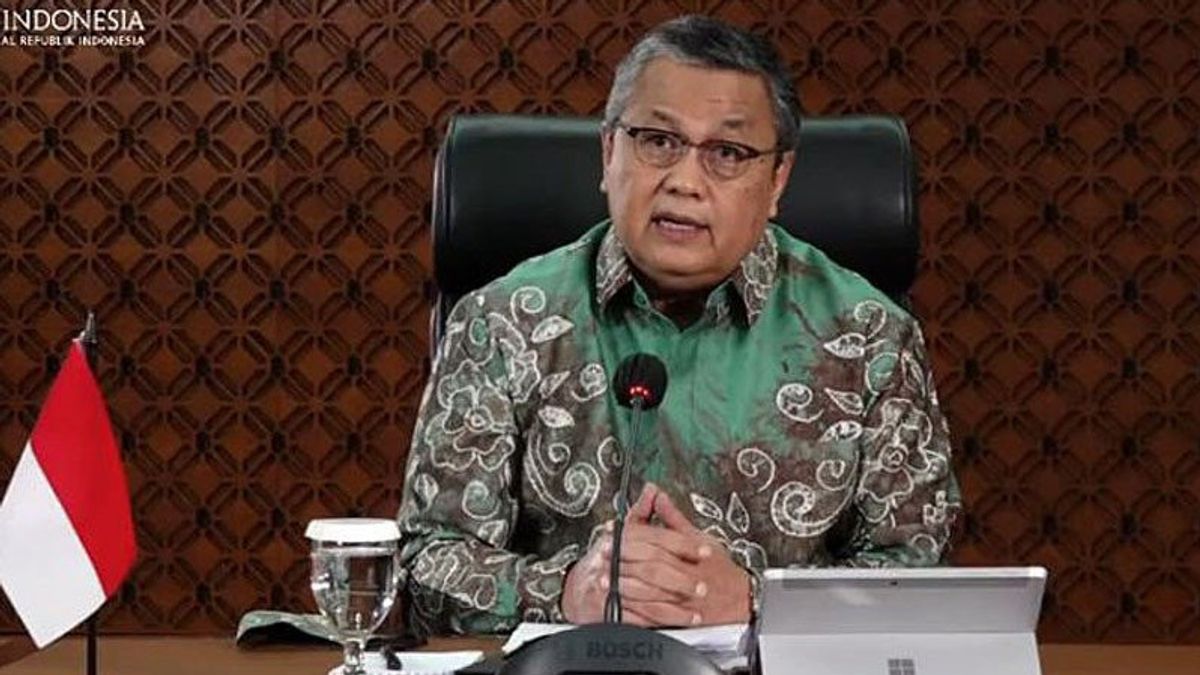JAKARTA - The Moody's rating agency again maintains the Sovereign Credit Rating of the Republic of Indonesia at Baa2, one level above the investment grade, with a stable outlook on April 16, 2024.
Moody's views this affirmation as in line with the results of the assessment that Indonesia's economic resilience is maintained to be supported by high and stable economic growth.
Responding to Moody's decision, Bank Indonesia Governor Perry Warjiyo, conveyed the credibility of the monetary and fiscal policies taken by the central bank and the government is also believed to support this achievement.
"Various innovations in monetary policy instruments are considered successful in increasing external resilience as reflected in the improvement of a number of indicators such as running transactions and the adequacy of foreign exchange reserves," he explained in his statement, Wednesday, April 17.
Perry said that the affirmation of Indonesia's rating in the Baa2 ranking with a stable outlook is a form of international confidence in the maintained macroeconomic stability and Indonesia's positive medium-term economic prospects.
The international trust is supported by the credibility of policies and the synergy of the strong policy mix between the government and Bank Indonesia amid increasing global economic uncertainty.
In the future, Perry said that Bank Indonesia will continue to pay close attention to global and domestic economic and financial developments, take the necessary policy steps to ensure maintained macroeconomic and financial system stability, and continue to increase policy synergy with the government to support sustainable economic growth. "
For information, Moody's projects that Indonesia's economic growth average in 2024-2025 will remain at the pre-pandemic level of around 5.0 percent.
The average is higher than other countries that are ranked Baa, which is growing in the range of 3.0 percent.
The strong economic growth forecast is mainly supported by the success of various structural reforms taken by the government which are directed at improving the investment climate which has an impact on increasing foreign investment, creating jobs, growth in exports and increasing government revenues.
In the external sector, Moody's views the resilience of the external sector as maintained, as reflected in an increasing trade balance surplus.
The implementation of downstream policy is believed to be one of the important factors that affects the increase in commodity export share which has added value, thereby increasing commodity export diversification and reducing sensitivity to prices.
Kemdian, this development was further able to encourage an increase in foreign exchange reserves which reached US$ 140.4 billion or equivalent to 6.4 months of imports at the end of March 2024.
In addition, Moody's assesses the close synergy of monetary and fiscal policy as the basis for maintaining policy credibility.
The implementation of the policy mix pursued by Bank Indonesia is seen as being able to reduce the volatility of the Rupiah exchange rate amid the uncertainty of the global financial market which affects foreign capital inflows.
SEE ALSO:
Meanwhile, the government's commitment to maintain a fiscal deficit below the 3 percent limit of GDP is able to keep the government's debt to GDP ratio low compared to other countries that are ranked the same.
In the medium term, the success of implementing government reform policies is the key to achieving higher economic growth targets in line with Indonesia Gold's 2045 vision.
Moody's previously maintained Indonesia's Sovereign Credit Rating in Baa2 with a Stable outlook on February 10, 2022.
The English, Chinese, Japanese, Arabic, and French versions are automatically generated by the AI. So there may still be inaccuracies in translating, please always see Indonesian as our main language. (system supported by DigitalSiber.id)
















